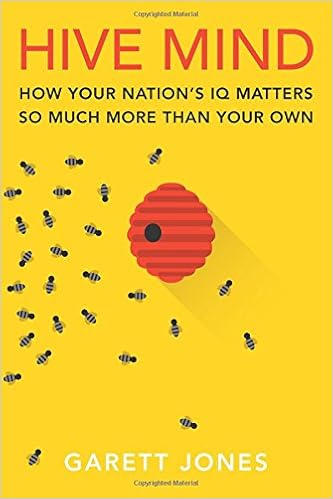 |
| Amazon link |
In 2007 James Watson was, well, ‘Watsoned’ for suggesting, "[I am] inherently gloomy about the prospect of Africa [because] all our social policies are based on the fact that their intelligence is the same as ours - whereas all the testing says not really." Since his views are validated in this book, I imagine his re-admission to public life cannot now be long delayed.
What else do we know? From genome studies and CSI police procedurals, we know that humanity exists in genetically-distinguishable ethnic groups, both within ancestral Africa and (via complex historical migrations) in the rest of the world. We know that intelligence as measured by IQ is strongly heritable (0.75). We know that the genetic component of intelligence is polygenic, and that the (thousands of) alleles positively associated with IQ are slowly being identified (the Beijing Genomics Institute is aiming to produce substantive results in the next few years).
And we expect, when we have this sequencing information, that different ethnic groups will exhibit different cognitive genotypes. It will then be clear that to elevate ethnic group (‘country’) intelligence up to (and perhaps beyond) the current East Asian level of IQ 105 is going to require DNA editing – there is a limit to how far good nutrition and iodine supplementation will take you.
Naturally Professor Jones knows all this - as does everyone else who takes the trouble to enquire. Unfortunately in the present state of public discourse, it cannot all be said without the Watsoning process re-engaging. So in ‘Hive Mind’ Garett Jones had a tough task: to synthesise the current state-of-the-art through the lens of economics while not getting fired. The scientific constraint? Not to say or imply things which are actually untrue or gratuitously mislead in the process.
As many have observed, the book starts well. Rehabilitating the concept and utility of IQ is not new science, it’s a defence and popularisation of what every informed person already knows but of course, it’s necessary and done well. Similarly, the detailed re-examination of national/ethnic phenomenological IQ differences (mostly from Lynn and Vanhanen) is both clear and brave.
IQ is then linked with patience, propensity to collaborate and future-orientation, as Jones reviews research in psychology, political science and game theory. Applied to economics, he describes how, in complex technologies where mistakes can break the whole process (‘O-Ring technology’), there are surprising returns to pervasive intelligence. To put it crudely, high-IQ countries can do leading-edge high-tech, and low-IQ countries can’t (note that this is hardly a surprise when one observes the world).
So far so good, but now the wheels begin to come off a little. As if concerned by the consequences of his argument, Jones feels the need to signal his essential liberalism and humanity. There are long accounts of the Flynn effect to motivate speculation about increasing the IQ of poorer, more corrupt and disorganised nations (really ethnicities). Here he presents intelligence (as measured by IQ) as far more plastic and environmentally-malleable than it actually is.
Finally he plays with some oversimplified economic models to suggest that immigration from low-IQ countries is in the interests of the inhabitants of high-IQ countries (it’s plainly in their own interest - to a point). Naturally he equivocates (consequent damage to existing high-quality institutions). But he seems to ignore both the evidence from history and the increasingly-scary predictions of a hollowing-out of demand for low-and middle-skilled jobs. I’m sure he felt he had to write this but it breaks the rule: do not mislead the reader.
Perhaps in five years or ten years, it will be possible to write a well-balanced public-policy book starting from humanity as it actually is. In such a more enlightened time, a Garett Jones revision of this book would be well-worth reading.
---
Here is the list of national IQs from the book.
Greg Cochran's review - be sure to read the comments.
Slate Star Codex review - be sure to read the comments.
No comments:
Post a Comment
Comments are moderated. Keep it polite and no gratuitous links to your business website - we're not a billboard here.